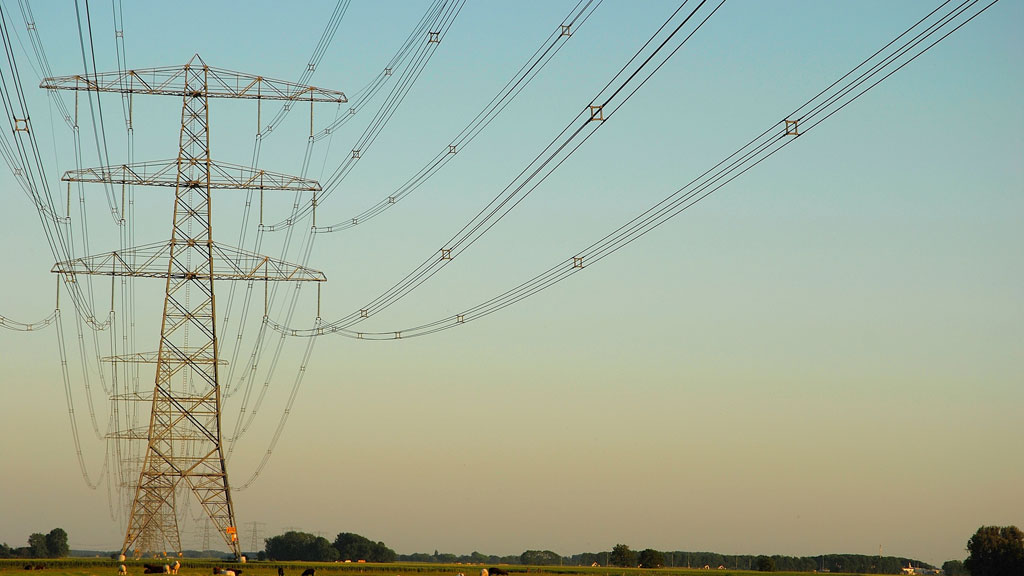Energy bill: the short-term cost of a greener future
Energy Secretary Ed Davey unveils what he called the biggest transformation of Britain’s electricity market since privatisation as the emphasis switches to low-carbon power.

But the focus on energy efficiency and the retention of gas as a “vital part of our energy mix” comes at a price – especially for consumers.
The government plans to give energy firms some leeway as they invest in a greener future, allowing them to add up to £7.6bn to bills for this purpose by 2020.
Experts predict this will add around £100 to average annual bills by the target date.
Mr Davey said the legislation would provide for more gas plants as well as the potential exploitation of shale gas reserves through the controversial fracking process.
And he said new coal plants would be allowed only if they include more environmentally friendly carbon-capture and storage facilities.
No carbonisation cap
He said one-fifth of the country’s existing power plants would close by 2020, leaving a requirement for cleaner energy provision – together with sufficient back-up from more traditional sources – to ensure continuity and security of supplies in an increasingly volatile industry.
However, he confirmed that the government would not include a specific “decarbonisation” cap for the power sector for 2030, although the bill will allow for a target to be introduced from 2016.
Environmental groups say this is a serious omission with potential for serious economic consequences amid uncertainty over “green” investment in the likes of nuclear and wind power.
Greenpeace political director Joss Garman said: “Billions of pounds of investment rest on this target being made law. Without it, there is serious risk of an investment vacuum after 2020, and of jobs and money being lost to our economic rivals.”
The organisation’s energy campaigner, Leila Deen, warned that “hard-pressed families” could end up paying for “new gas stations that we don’t need”.
Rob Gross, director of the Centre for Energy Policy at Imperial College and co-director of the UK Energy Research Centre:
The principle of long-run, fixed price contracts for electricity generated without fossil fuels fits with our understanding of what investors need. Because the government is now proposing a credible counter-party for these contracts, it appears they can work.
However, the provisions in the bill are very complicated. There is still a great deal of detail to get right.
Though the politics are understandable, the decision not to include a 2030 electricity decarbonisation target is unfortunate.
Our research has stressed the importance of longer-term signals. Our report on the costs of offshore wind found that investors fear a 'cliff edge' after 2020 and would like a clear indication of policy intent to the mid 2020s and beyond.
A decarbonisation target would provide that certainty."
The organisation’s energy campaigner, Leila Deen, warned that “hard-pressed families” could end up paying for “new gas stations that we don’t need”.
Mr Davey said the majority of the £110bn investment in the electricity industry over the next decade would not come from taxpayers, with an expectation of substantial private investment in low-carbon energy.
But while consumers face a short-term premium to pay for the transition to a greener supply, he said everybody would benefit from the long-term stabilisation of UK prices, with the average household bill £94 lower by 2020 than it would have been without the low-carbon energy policy.
Mr Davey pledged to provide consumers with help to get on the best energy tariff for their needs, although the opposition seized on a failure to guarantee that all customers would be on the lowest possible tariffs.
‘Nail the lie’
Shadow energy secretary Caroline Flint said: “The simple truth is that even the lowest tariff in an uncompetitive market will not be a good deal.”
And she insisted: “I make no bones about it – we support a clear decarbonisation target in this bill.”
Friends of the Earth‘s executive director Andy Atkins said the bill would “lock the nation into increasingly expensive gas, condemn cash-strapped households to rising fuel bills and threaten the nation’s targets for tackling climate change”.
He said: “Ministers must nail the lie that green policies are behind soaring fuel bills – it’s the rocketing price of gas that’s overwhelmingly responsible for the misery inflicted on consumers.”
Read more: Why our energy bills keep going up - the key questions
The government also published proposals to reduce energy demand through increased energy efficiency. The Department of Energy and Climate Change estimates that a 10 per cent reduction in electricity use could save £4bn by 2030 and reduce carbon emissions equivalent to those of a large city in a year.
The Nuclear Industry Association welcomed the proposals for “a major nuclear new-build programme” that would lead to substantial industrial and employment benefits”.
Chairman of the Federation of Small Businesses John Walker welcomed “the much-needed certainty” but feared for the impact of “ever-increasing energy bills” on small firms.
And Angela Knight, chief executive of Energy UK, said that while the bill was “a big and positive step forward”, its detail needed to provide “sufficient clarity and confidence for investors over the direction the UK is taking on energy policy”.
“Huge investment will now start being made in our energy infrastructure, and this will create jobs and help economic recovery,” she said.
“At the same time, a focus on affordability for households and for businesses of all sizes, now and during these changes, is essential.”